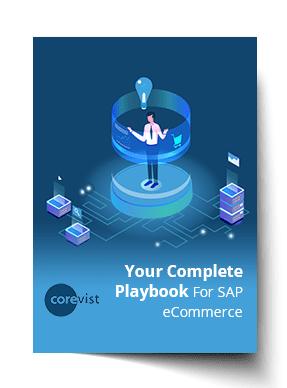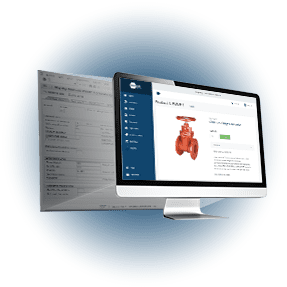Share
Author
George Anderson
Share
No doubt about it, Shopify offers a tantalizing entry point to eCommerce. It’s easy to stand up and doesn’t require a lot of technical resources to maintain.
However, a challenge arises for organizations with SAP ECC or S/4HANA as their ERP. How do you integrate eCommerce to SAP?
While options exist for connectors, it’s worth interrogating your use case. Due to Shopify’s limitations (and the inherent limitations of batch-based connectors), a Shopify-SAP integration isn’t right for every scenario.
In this article, we’ll go over Shopify-SAP integrations — your options, what you need to know and alternatives.
Should you integrate Shopify to SAP?
If you’ve already implemented Shopify, it often makes sense to integrate it to ECC or S/4HANA. At the very least, you need to synchronize data for orders, products, and customers. You won’t be able to deliver every integration point for every use case (see below), but for basic situations, it makes sense to do this — particularly for B2C scenarios in which every transaction abides by the same business rules.
In a B2B scenario, syncing Shopify and ECC or S/4HANA gets more problematic. If you have customer-specific business rules like contract pricing or personalized inventory calculations, Shopify and your connector may not be able to support your complexity. We see this most often with manufacturers selling to dealers or distributors. In these cases, it often makes more sense to look for an alternative solution (see below).
NEW Guide:
Your Complete Playbook for SAP eCommerce
Here are 4 keys to a successful eCommerce channel in an SAP ERP scenario.
Caveats for integrating Shopify and ECC or S/4HANA
While the market offers numerous connectors for Shopify and SAP, it’s important to understand the limitations of batch-based architecture.
For example, if you need real-time inventory data from SAP in Shopify, you’ll need to set your synchronization interval as low as possible — say, once every minute — to approximate real-time data. Yet because this is still a two-way sync, you’ll be using more resources to pass data back and forth constantly. Depending on how you’re billed, you may blow through your budget pretty fast. It all depends on your needs and how much data you need to pass (and how often).
What if you’re migrating to S/4HANA?
You’ll want to tread carefully if you have an S/4HANA migration on the horizon. The only way to integrate Shopify with SAP is to implement a middleware solution with its own duplicate copy of business rules and data. Because S/4HANA has some fundamental differences in its data model, it’s unlikely you’ll be able to transfer your Shopify-ECC integration to S/4HANA. Most likely, you’ll need a new implementation of your middleware solution for the S/4HANA environment.
In these scenarios, a platform like Corevist offers a much better solution for B2B use cases. Corevist Commerce Cloud includes direct, real-time integration that’s SAP certified for both ECC and S/4HANA. Because Corevist is architected with SAP at the core (and built and maintained by SAP experts), there’s minimal effort required to transfer your Corevist integration when you migrate — plus the Corevist front-end UX is totally unaffected by the migration.
Read more here: Should We Wait For Our S/4HANA Migration To Launch Corevist Commerce Cloud?
Options for integrating Shopify and SAP
Here are a few leading connectors for Shopify and SAP. We can’t vouch for whether these will work with S/4HANA. Most of them just advertise “SAP ERP,” which usually means ECC. Since the data model is different for S/4HANA, you’ll want to do your research if you’re migrating.
Note: Because each of these connectors is a separate system, you’ll need to duplicate all the relevant SAP business rules in the connector (and potentially in Shopify too, to the degree that Shopify supports that kind of sophistication). There’s a risk of increasing technical debt with any of these connectors because a change to SAP business rules requires a change to the same business rules in the integration platform.
APPSeCONNECT
APPSeCONNECT offers separate connectors for ECC and S/4HANA. They mention real-time capabilities, but it’s worth noting that this is still a sync-based architecture that requires duplication of data and business rules.
eBridge Connections
eBridge Connections offers a connector for SAP B1 and Shopify, but it’s difficult to tell if they also offer one for ECC. These ERPs are entirely different, so make sure you do your research.
It’s worth noting what Third and Grove, a digital agency, says about eBridge Connections: “We have vetted or used just about every ERP connector in the Shopify ecosystem. In our experience and analysis, only the Zapier and eBridge Connections connectors are production-ready. We would not recommend any other pre-built connectors.”
Clarity Ventures
Clarity Ventures’ solution allows you to do real-time or batch-based data transfer. But it’s worth noting that in either scenario, you’ll still have duplicate copies of all business rules and data from SAP.
Alumio
Alumio offers a connector for Shopify and SAP ECC or R/3. (R/3 is the predecessor of ECC, first launched in 1992.) Like every other connector in this list, this one depends on synchronization. In the case of Alumio, you create the integration yourself in a graphic user interface. While it’s great that you can do that without IT resources working on code, you should do your due diligence and make sure Alumio will support your complexity.
Will a Shopify-SAP integration work for you?
In some B2B use cases, Shopify with a connector isn’t going to cut it. This is especially true for manufacturers who are using Shopify to sell to dealers or distributors. In these cases, it’s nearly impossible to replicate customer-specific business rules in the Shopify experience.
So how do you know if Shopify will work for you?
Here’s a quick list of features and functionality that require deep, real-time SAP integration in the web store. These features are difficult (or impossible) to deliver in Shopify, regardless of your chosen connector.
- Customer-specific contract pricing as defined in ECC or S/4HANA (including any product bundling rules)
- Customer-specific catalogs or picklists as defined in SAP
- Real-time error messaging to help customers fix orders that don’t conform to SAP business rules
- Only 100% error-free orders accepted (and posted to SAP)
- Mapping of multiple ship-tos, sold-tos and payers from SAP to a single eCommerce user
- Real-time credit status (so the customer can tell if their order will go on credit block)
- Real-time status and history from SAP for all orders, invoices and shipments
- Real-time dynamic SAP reports displayed in eCommerce
If you need any of these features in the web store, you might need to find an alternative to Shopify — preferably one that includes prebuilt, real-time SAP integration for B2B use cases.
Alternatives to Shopify in an SAP scenario
While manufacturers often use Shopify for a standalone proof-of-concept, they usually find it’s too limited to serve their dealers and distributors. After all, the platform wasn’t built for “true B2B” use cases. It was built for B2C, which it does quite well.
For complex B2B scenarios, Corevist Commerce Cloud may be a better choice. Our solution includes prebuilt, configurable integration for ECC and S/4HANA. It runs in real time with no additional system sitting between the web store and your SAP system. If you’re migrating from ECC to S/4HANA, you’re in luck — Corevist makes the transition with minimal effort and no change to the front end experience.
Corevist is different, too, because our solutions are managed. We implement and support the entire stack, including our market-leading SAP integration. This allows you to focus on your core business without taking on the responsibilities of a technology company.
Want to become Easier To Do Business With?
Check out Corevist Commerce Cloud.
Managed B2B portals and eCommerce with prebuilt integration for ECC and S/4HANA.











